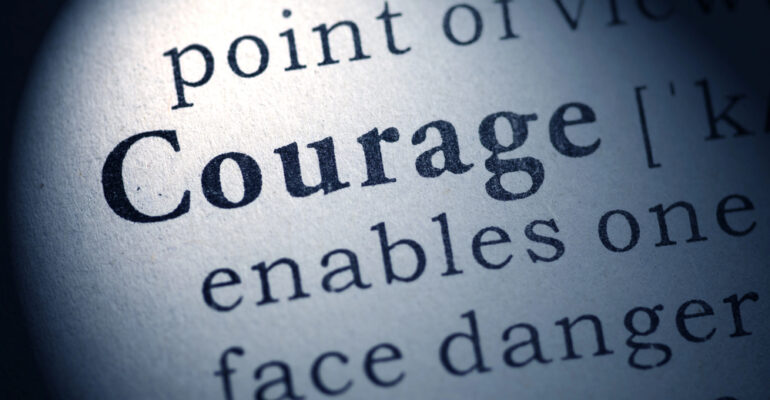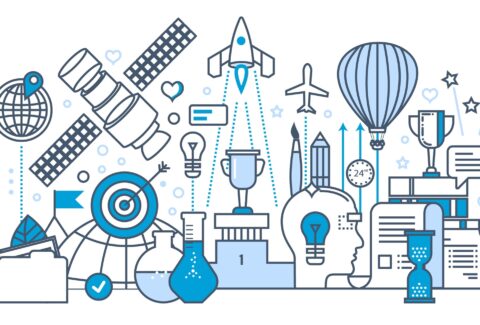The Power of Courage: Unleashing Your Inner Strength
Courage[1] is often lauded as one of the most admirable human traits, a quality that drives people to act in the face of fear, adversity, and uncertainty. It is the invisible force that propels individuals to stand up for what they believe in, to venture into the unknown, and to overcome formidable obstacles. In a world rife with challenges and unpredictability, the power of courage cannot be overstated. It is a catalyst for change, a beacon of hope, and a testament to the resilience of the human spirit.
Defining True Courage
True courage is not the absence of fear but rather the willingness to confront it. It is about acknowledging the presence of fear and deciding to move forward despite it.[2] This form of bravery is seen in everyday acts of resilience and integrity, where individuals choose to do what is right over what is easy. Courage manifests in various forms – from the soldier on the battlefield to the whistleblower in the corporate office, from the survivor of illness to the advocate for social justice. Each act of courage, big or small, contributes to the tapestry of human strength and fortitude.
The Role of Courage in Personal Growth
Courage is a fundamental element of personal growth.[3] It requires stepping out of one’s comfort zone and embracing the unknown. When we dare to take risks, we open ourselves up to new experiences and opportunities that can significantly enrich our lives. This process of venturing beyond familiar boundaries fosters resilience, adaptability, and self-confidence. It is through these courageous endeavors that we learn, evolve, and discover our true potential.
Courage and Innovation
In the realm of innovation, courage plays a pivotal role. The willingness to challenge the status quo, to think outside the box, and to take bold steps in uncharted territories is essential for progress.[4] History is replete with examples of courageous individuals who have transformed society with their innovative ideas and actions. From the scientific breakthroughs of pioneers like Marie Curie to the civil rights movements led by figures like Martin Luther King Jr., it is evident that courage is a driving force behind significant advancements and societal change.
Courage in Leadership
Effective leadership is intrinsically linked to courage. Leaders are often required to make tough decisions, stand up for their values, and inspire others amidst adversity. Courageous leaders are those who are willing to take responsibility, face criticism, and make sacrifices for the greater good.[5] They are transparent, accountable, and committed to their mission, regardless of the challenges they encounter. Such leaders not only guide their teams to success but also foster an environment of trust and respect.
The Everyday Acts of Courage
While tales of heroism and groundbreaking achievements are awe-inspiring, it is important to recognize the everyday acts of courage that often go unnoticed. The single parent working multiple jobs to provide for their children, the student who speaks up against bullying, the individual battling a chronic illness with unwavering determination – these are all examples of everyday bravery. These acts may not make headlines, but they are the silent testimonies of human resilience and strength.[6]
Cultivating Courage
Courage can be cultivated and strengthened over time. It begins with self-awareness and an understanding of one’s fears and limitations.[7] Setting small, achievable goals and gradually pushing beyond comfort zones can build confidence and resilience. Surrounding oneself with supportive and like-minded individuals can also provide the encouragement needed to take bold steps. Moreover, reflecting on past experiences of bravery and learning from them can serve as a source of inspiration and strength.
The Ripple Effect of Courage
The impact of courage extends beyond the individual. Acts of bravery often inspire others to act similarly, creating a ripple effect of positive change. When one person stands up against injustice, others are encouraged to join the cause. When someone dares to pursue their dreams, it motivates others to follow their passions. Courage, therefore, has the power to transform not only individual lives but entire communities and societies.[8]
Conclusion
Courage is the cornerstone of human progress and the essence of our collective strength. It empowers us to face our fears, to overcome challenges, and to strive for a better future. In times of uncertainty and adversity, it is our courage that lights the path forward, guiding us toward resilience, innovation, and growth. As we navigate the complexities of life, let us embrace the power of courage, recognizing it as the force that propels us to become the best versions of ourselves and to contribute meaningfully to the world around us.
[1] Benitez, Trista M., and Kevin C. Chung. “On Courage.” Plastic and Reconstructive Surgery 152.1 (2023): 1-9.
[2] Rate, Christopher R. “Defining the features of courage: A search for meaning.” (2010).
[3] Yost, Kimberly. “Courage for Personal Growth.” Courageous Companions. Emerald Publishing Limited, 2024. 15-24.
[4] Altidor, Welby. Creative courage: Leveraging imagination, collaboration, and innovation to create success beyond your wildest dreams. John Wiley & Sons, 2017.
[5]Wan, Khoo Ee. “Leadership and Courage.” Singapore: Civil Service College (2017).
[6] Medina, Marc. “Everyday Courage.” Existential Analysis: Journal of the Society for Existential Analysis 19.2 (2008).
[7] Detert, James R. “Cultivating everyday courage.” Harvard Business Review 96.6 (2018): 128-135.
[8] Chen, Yushuai, et al. “The trickle-down effect of leaders’ pro-social rule breaking: Joint moderating role of empowering leadership and courage.” Frontiers in psychology 9 (2019): 2647.







